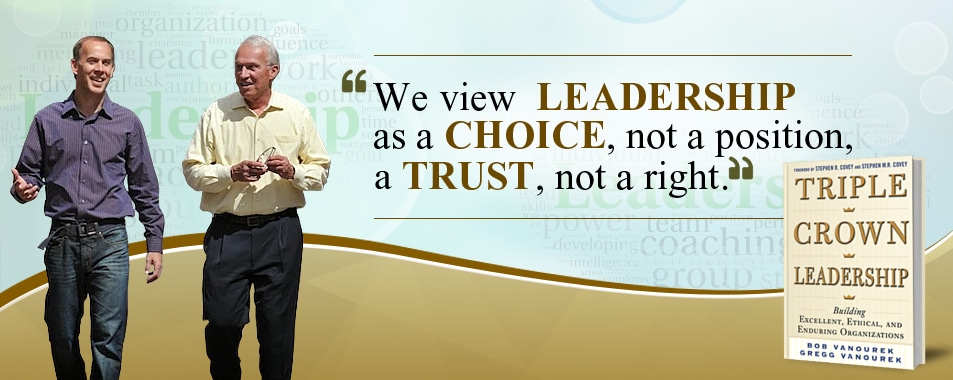Article Summary:
Wise leaders take the time for self-care through a regimen of daily activities, sanctuary, and retreats. The benefits of personal renewal for leaders are enormous, ensuring you’re living a good and meaningful life.
+++
Many of us are so tied up in the chaos of our lives that we don’t take proper care of ourselves. We don’t eat healthy foods, get enough sleep or exercise, or take vacations. If we do take time off, we stay on the grid, bringing us right back into the swirl.
The Negatives of Poor Self-Care
Poor self-care leads to excessive stress, sapped energy, bad decisions, impatience, anger, and burnout. It leads to sub-optimal job performance, harms our health, and damages our relationships. Is it worth the price?
Beyond the general practices of proper self-care—such as good and regular sleep, nutrition, and exercise—there are three powerful ways to renew ourselves amidst the chaos. They require discipline and persistence, but the results are remarkable.
1. Daily Restorative Activities
Each day, it helps to get our minds off our work and engage in restorative activities. We both enjoy regular walks, hikes, and runs. Amidst some challenging company turnarounds, Bob set and achieved the goal of running 1,000 miles a year. Most times, he ran in the morning before he went to work to start the day off right.
A daily restorative activity might be walking, yoga, gardening, Tai Chi, or a hobby that absorbs our attention—and perhaps listening to music while engaged in these activities. The best place for these activities is outside in sunlight and fresh air if weather permits.

Leadership Derailers Assessment
Take this assessment to identify what’s inhibiting your leadership effectiveness. It will help you develop self-awareness and identify ways to improve your leadership.
2. Sanctuary
Sanctuary is the missing link for most leaders, in our experience. It’s a place or practice of peace that restores our heart.
Our sanctuary can be places of refuge, safe harbors from the storms of life. In places of sanctuary, we can withdraw from the chaos, let go, and be present with the silence. Ideally, we’ll find peace and quiet for deep reflection, and we can rebalance ourselves.
A place of sanctuary is off the grid. It’s a place with no interruptions or distractions. It can be a place of worship. Or it can be a quiet room at home. In places of sanctuary, we can connect with something larger than our selves.
A place in nature is ideal: a cabin or some spot overlooking a forest, lake, or river. It’s wise to have several places where we can find sanctuary, some near and others a bit further away.
Sanctuary can also be a practice, for example, of prayer, meditation, yoga, deep breathing, or reflection to renew ourselves and develop resilience. Gregg uses a morning ritual for his sanctuary practice, including reading, prayer, meditation, and affirmations—and sometimes a morning walk. It sets a great tone for the day.
“At a deeper level, we need ‘sanctuary’ in our lives: places and practices of peace that restore our hearts. Places of quiet and tranquility. Together, renewal and sanctuary can lead to serenity. Beyond the striving, beyond the chase, beyond the willfulness, there is an acceptance, a yielding, a comfort with the present moment and a willingness to see things for what they are and ride with the flow of life. The serenity beyond the stress and struggle.”
-Gregg Vanourek, “Ten Keys to Self-Leadership”
Max Israel, an entrepreneur interviewed by Gregg and Christopher Gergen for their book, LIFE Entrepreneurs: Ordinary People Creating Extraordinary Lives, takes 25 work-week days (not holidays or vacation days) each year to hike, bike, or enjoy activities on the water in Seattle. Max calls this his own “secret office,” where he quiets his mind and does his best creative thinking, resulting in his best business ideas while also rejuvenating his energy and restoring his soul.
3. Retreats
We should also take periodic retreats or sabbaticals, with extended time away from the swirl of our lives—off the grid—to reflect and renew our minds, bodies, and souls. During these retreats, we can sort out our priorities check to see if we’re on the right path. They can be taken alone or with a spouse, partner, or family.
Retreats differ from vacations, where we go from activity to activity with family or friends to enjoy new places and experiences. Vacations are important because they deepen our relationships and give us down-time, but they’re not retreats.
Once, Bob and some colleagues took a week-long retreat at a monastery where silence was practiced for days at a time. It was wonderfully refreshing.

“I went to the woods because I wished to live deliberately, to front only the essential facts of life, and see if I could not learn what it had to teach, and not, when I came to die, discover that I had not lived. I did not wish to live what was not life, living is so dear; nor did I wish to practice resignation, unless it was quite necessary. I wanted to live deep and suck out all the marrow of life, to live so sturdily and Spartan-like as to put to rout all that was not life, to cut a broad swath and shave close, to drive life into a corner, and reduce it to its lowest terms….” -Henry David Thoreau
The Benefits of These Renewal Practices
The renewal practices of daily restorative activities, sanctuary, and retreats have many benefits that are easy to overlook. For example, they can help us:
- renew our mind, body, and spirit
- maintain perspective
- decompress and relieve stress
- avoid burnout
- regain energy
- avoid poor decisions from our tired minds
- stimulate our creativity
- revitalize our health and relationships
- realize it when we’re lost, disconnected, or not living in accordance with our purpose and values
- live well

Personal Values Exercise
Complete this exercise to identify your personal values. It will help you develop self-awareness, including clarity about what’s most important to you in life and work, and serve as a safe harbor for you to return to when things are tough.
Summary
The swirl of our daily lives can do great damage to our health, career, and relationships. We should embrace the three powerful renewal practices of daily restorative activities, sanctuary, and retreats. These practices can help ensure we’re living good and meaningful lives.
Reflection Questions
- Are you burning out?
- What might you do each day to take better care of yourself?
- What places or practices of sanctuary can you identify?
- When will you take your next retreat?
Tools for You
- Leadership Derailers Assessment to help you identify what’s inhibiting your leadership effectiveness
- Personal Values Exercise to help you determine and clarify what’s most important to you
- Traps Test to help you identify what’s inhibiting your happiness and quality of life
- Quality of Life Assessment so you can discover your strongest areas and the areas that need work, then act accordingly
- Crafting Your Life & Work online course to help you design your next chapter and create a life you love
Related Articles and Books
- “Personal Resilience and Self-Care in Hard Times”
- “Ten Keys to Self-Leadership”
- “Thriving amidst Chaos and Uncertainty: 12 Tips”
- “”Health and Vitality: Keys to Your Quality of Life”
- “Burnout and the Great Resignation”
- “Three Ways to Beat Burnout”
- “Good Nutrition for Health and Wellness”
- “Exercise and Movement for Health, Wellness, and Great Work”
- “Great Sleep for Health, Wellness, and Great Work”
- “Unlock the Power of Purpose in Your Work and Leadership”
- “How Small Business Owners Can Thrive in Their Life and Work”
- “A Guide to Life-Boosting Activities”
- “How to Do an Annual Life Review: 7 Questions”
- John W. Gardner, Self-Renewal
- Kevin Cashman, The Pause Principle
- Arianna Huffington, Thrive
- Hal Elrod, The Morning Miracle
- Ronald Heifetz, Leadership Without Easy Answers
Postscript: Quotations on Renewal
- “In life itself, there is a time to seek inner peace, a time to rid oneself of tension and anxiety. The moment comes when the striving must let up, when wisdom says, ‘Be quiet.’ You’ll be surprised how the world keeps on revolving without your pushing it. And you’ll be surprised how much stronger you are the next time you decide to push.” -John W. Gardner
- “Having a readily available sanctuary provides an indispensable physical anchor and source of sustenance. Too often under stress and pressed for time, our sources of sanctuary are the first places we give up.” -Ronald A. Heifetz and Marty Linsky, leadership authors
- “In a world driven by ego, accumulation, and stress, how powerful is it to step away from our worldly cares and tune into a higher power, recognizing that there is something so much greater than ourselves with our flaws and our brokenness.” -Gregg Vanourek
- “Rest when you’re weary. Refresh and renew yourself, your body, your mind, your spirit. Then get back to work.” -Ralph Marston, author
- “We must always change, renew, rejuvenate ourselves; otherwise, we harden.” -Johann Wolfgang von Goethe, German poet and playwright
- “Sometimes you need to step off the worn path, lay down with your eyes up to the blue sky, interlock your fingers behind your head and let the grass grow up around you.” -Leo Christopher
- “Like professional athletes, we all can increase our performance by consistently building in time for recovery…. It’s important to make daily renewal a cherished habit.” -Christopher Gergen and Gregg Vanourek, LIFE Entrepreneurs
- “The nurse of full-grown souls is solitude.” -James Russell Lowell
- “Take rest; a field that has rested gives a bountiful crop.” -Ovid, ancient Roman poet
- “Whatever we do to care for true self is, in the long run, a gift to the world.” -Parker Palmer, A Hidden Wholeness
- “Sharpen the saw.” -Stephen R. Covey, leadership author
“By all means use some times to be alone. Salute thyself: see what thy soul doth wear.”
-George Herbert

Crafting Your Life and Work Course
Regain clarity, direction, and motivation for your next chapter, starting with a powerful foundation of self-awareness and commitment to your values and aspirations.
++++++++++++++++++++++
Gregg Vanourek and Bob Vanourek (son and father) are co-authors of Triple Crown Leadership: Building Excellent, Ethical, and Enduring Organizations, a winner of the International Book Awards. Check out their Leadership Derailers Assessment or get their newsletter. If you found value in this, please forward it to a friend. Every little bit helps!


